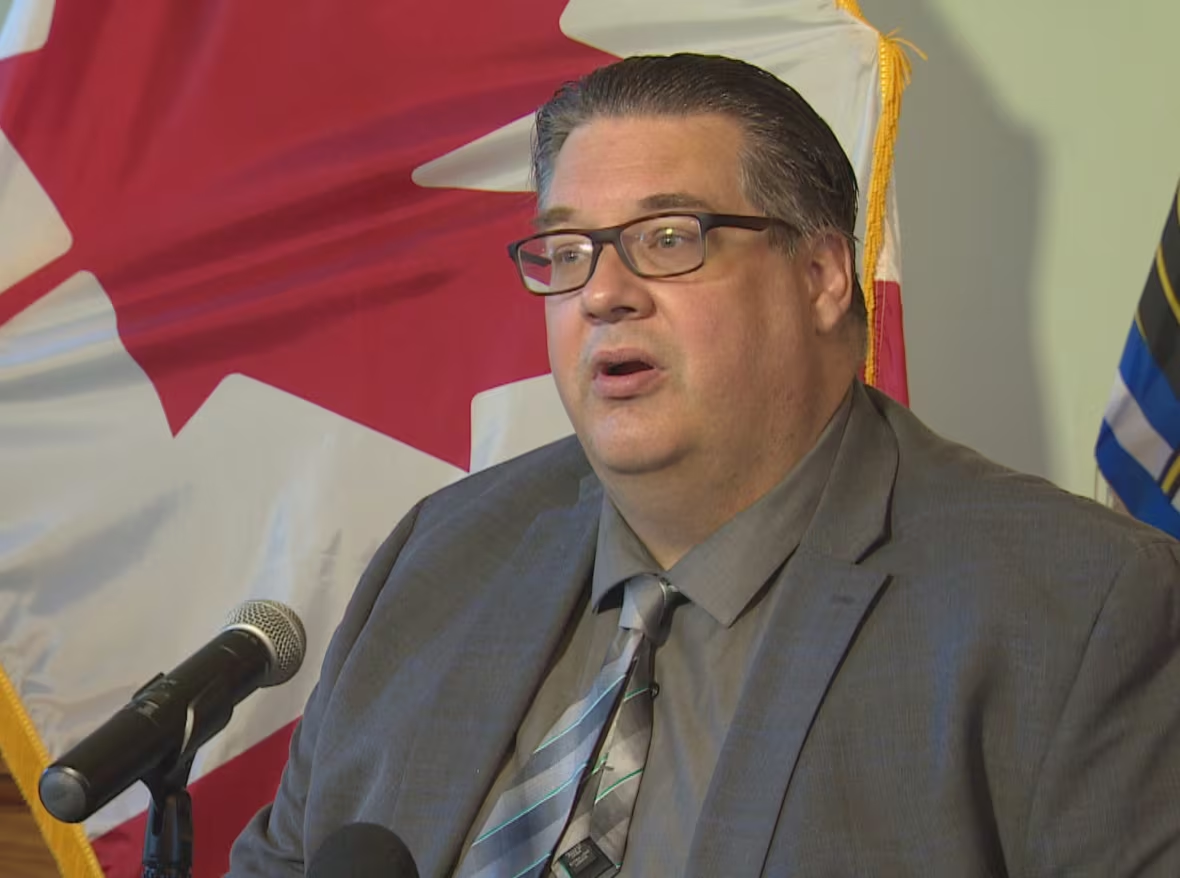Are things better for N.B. youth after Lexi Daken's death? The child advocate is not sure
Kelly Lamrock says improvements have been made, but positive outcomes for youth in crisis not guaranteed

It's unclear whether every child in a mental health crisis who shows up to a New Brunswick hospital would receive the care they need to save their life, says the province's child and youth advocate.
Kelly Lamrock spent August and September examining changes that have been made to improve youth access to mental health services in the wake of Lexi Daken's death by suicide in February 2021.
While there have been improvements, such as hiring additional staff at emergency departments, there is no clear indication the same thing could not happen again to another child, Lamrock told a news conference in Fredericton Monday.
"If a young person in crisis, as young Lexi Daken was, walked into the emergency room today or sought help, would there be a better outcome?
"What I can say is that there is progress but we don't know the answer with certainty and the difference between doing some good things and having a system that responds predictably in the right way is the difference between where we are now and where we need to be very shortly."
Sixteen-year-old Daken was taken to the Dr. Everett Chalmers Regional Hospital on Feb. 18, 2021 and asked for mental health help. After waiting for eight hours, she left without getting any mental health interventions and died by suicide a week later.
The Maugerville teen's death sparked widespread debate over gaps in the mental health-care system. Then-minister of health Dorothy Shephard quickly acknowledged the system was broken and vowed to fix it.

In May 2021 Shephard announced 21 changes to fix mental health care in New Brunswick, which largely included recommendations on improving emergency department care by better training staff and providing mental health care around the clock.
'"The best we can do" is not a policy statement'
A year later, the province had only implemented a third of those promised recommendations.
Meanwhile, former child and youth advocate Norm Bosse in September 2021 released his own report on Daken's death. His 12 recommendations included training for all professionals working in child and youth mental health, and the creation of a provincial strategy for child and youth rights.
Lamrock, who took on the role from Bosse in February, said his office has begun a process of tracking the province's implementation of those recommendations, with a plan to provide public progress updates about every six months.
In his first progress report, released Monday, Lamrock said the province did respond to the alarms raised by Daken's death, such as by increasing the amount of money budgeted annually for mental health services by 7.9 per cent, up from a 20-year average annual increase of 3.6 per cent.
However, he said what remains missing are clearly defined goals around what kinds of staff need to be hired, and the number that is needed.
"There hasn't really been that clear direction. 'The best we can do' is not a policy statement, and it isn't a plan. It's muddling through," he said.
Health Department to examine report
CBC News requested an interview with Health Minister Bruce Fitch about any clear goals his government has for hiring new mental health staff.
Fitch was unavailable for an interview Monday, but in an email statement, said youth access to mental health is important to the government
"We're going to take an in-depth look at [Lamrock's] findings, and at what we've been able to do so far on this file," Fitch said.
"We were encouraged to see that he recognized our efforts to increase funding and human resources in the mental health sector, and our work to improve access to walk-in mental health care.
"However, we've also heard that he'd like to see some additional planning to ensure change is coming in a reasonable timeframe. We thank him for that feedback, and we'll be looking at that in the days ahead."
Urgent need for services in First Nations
In his report, Lamrock said the province has taken positive steps forward through pilot projects aimed at improving the mental health of youth in Elsipogtog First Nation and on the Acadian Peninsula.
However, he criticized a lack of any apparent plan to track their outcomes or to expand them to include the entire province.
He also highlighted the "urgency of the situation in First Nations communities," adding that the 14 other communities need similar services as what's currently being offered in Elsipogtog.
"The difference in suicide rates and a host of other indicators are unconscionable," he said, adding there needs to be a clearly defined position in government to co-ordinate those services on First Nations.
"We are hearing from leaders in First Nations communities that several departments are each claiming the lead lies elsewhere. This needs to stop, and the process needs to be clarified and activated.
Lamrock also raised concerns about the province's willingness to sustain improvements mental health access, highlighting a move by government to cut $40,000 in funding back in February 2020 for a provincial co-ordinator position to run a peer-mentoring program.
Among Lamrock's 13 recommendations are a call for recruiting targets for mental health professionals; clear statements of training requirements for ER staff, including physicians; cabinet-level responsibility for integrated service delivery and management of files for children with complex needs; and multi-year planning for walk-in, mobile crisis and "one-at-a-time" counselling services.
Lamrock said his next progress update will be released next spring.
Report of New Brunswick's Child & Youth Advocate (PDF 277KB)
Report of New Brunswick's Child & Youth Advocate (Text 277KB)CBC is not responsible for 3rd party content

